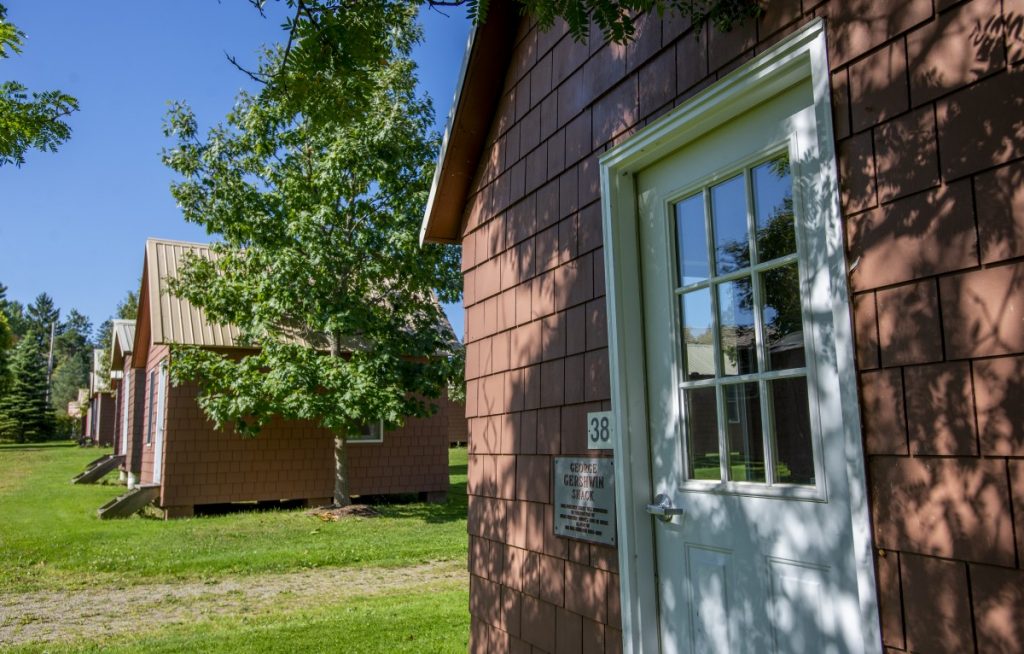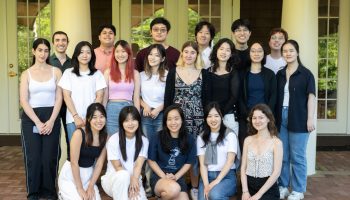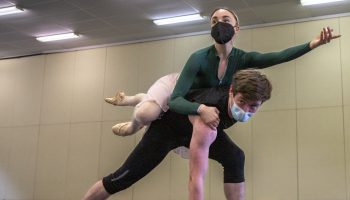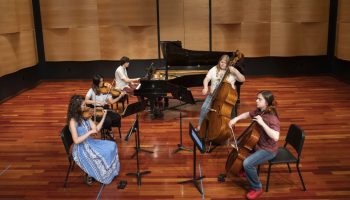
The Chautauqua experience will look different this summer, not least of all for students in the School of Music, who in a traditional season would be settling into dorms and rehearsing together for the first time this week. But one thing for those students will remain unchanged: they are still in for a summer of enrichment through training, mentorship and performances.
In an effort to keep the public arts alive while public life is on lockdown, Chautauqua Institution’s School of Music will present a four-week intensive online program starting July 13. The program is a part of the CHQ Assembly and will be featured weekly on the CHQ Assembly Video Platform.
Timothy Muffitt, music director of the Music School Festival Orchestra, said the programming is set to be a combination of “traditions and exploration.”
“We want to ensure the virtual component is an asset and not a liability,” Muffitt said. “We are not just going to try to recreate what we do when we are on the grounds in a 2D form — that would be a poor substitute. So, what we are doing is combining online assets with the history and traditions we know, and making something that is extraordinary all on its own.”
According to Sarah Malinoski-Umberger, manager of the Chautauqua Schools of Performing and Visual Arts, student input was prioritized in what she called the “reprogramming process.”
“Since we had to cut out so much of our regular programming and live components, we really tried to focus on career development and enrichment for this season,” Malinoski-Umberger said. “We sent out a survey to ask what topics they were most interested in, because this summer is really focused on the students and their needs.”
Each week is built around a different component of artist development. Muffitt said the first theme, in Chautauqua’s Week Three, is aptly named “Innovation and the 21st Century Musician.”
“That first theme is focused on online preparations, online recitals and online teaching, simply because that’s the way the world is right now,” Muffitt said. “Because it is virtual, we can connect our students with people that they otherwise would have never been able to connect with to teach them these real-world lessons. That’s special.”
Subsequent themes include “Challenges and Opportunities Facing Today’s Professional,” “Career Enhancement and Development” and “Conversations with CHQ Distinguished Alumni and Faculty.”
Intertwined with the weekly themes is a new Innovation and Career Advancement series delivered through CHQ Assembly’s Online Classroom. The seminars, delivered by a variety of industry leaders and alumni, will explore innovation, career development and enhancement and wellness. According to Malinoski-Umberger, this series will help the school maintain some of their “unique elements of study,” such as the value of cross-disciplinary work.
“During the third week about career development, we plan to discuss the importance of expanding your career options — because you can’t just plan on being a musician anymore,” she said. “Just look at what is happening in the industry during the pandemic, with furloughs and cuts — you need to have a plan B and C to rely on if you need to. We hope to give them that.”
While the programming details are vastly different from previous seasons, Muffitt said Chautauquans will still be able to attend masterclasses for each program — Instrumental, Voice and Piano — via livestream on CHQ Assembly. On Wednesdays, Thursdays and Fridays, each department will also feature livestreamed recitals.
“Those masterclasses and recitals will be exactly what our returning Chautauquans are used to seeing — just from their couch this time around,” Malinoski-Umberger said.
In addition, Muffitt said the programs still plan to provide students with weekly lessons and coachings with resident faculty. There will also be private weekly studio classes and audition seminars.
Even with every new addition and workaround, Malinoski-Umberger and Muffitt said nothing can replace the sounds of a summer of music on the grounds. Therefore, all current students have been invited back for the 2021 season.
“We really want to keep a sense of community and the close interactions between the faculty and students, which I think is what makes our program so unique,” Malinoski-Umberger said. “I think it’s important to give them the opportunity to experience everything we have to offer.”
Malinoski-Umberger is optimistic that next season will bring the in-person features she has already begun to miss, but believes with the students’ unprecedented ability to focus on professional development, the digital space is already offering opportunities of its own.
Regardless of whether students sharpen their skills in McKnight Hall or live from their bedrooms, she said “they still own it — every note.”
“I am looking forward to giving the students something to work toward and with that, a bit of hope,” Malinoski-Umberger said. “I know a lot of them are really upset, obviously, because there is so much uncertainty. I am hoping that for at least those four weeks, we can come together and make something beautiful. I think, more than ever, we all need that right now.”




